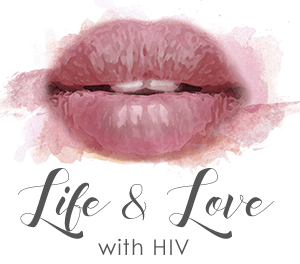
5 Tips On How To Go Down On A Woman With HIV
October 15, 2015
Love and Relationships
February 10, 2016
5 Tips On How To Go Down On A Woman With HIV
October 15, 2015
Love and Relationships
February 10, 2016By Dr. Allie Carter
Sex and relationships are important aspects of life. For people who are recently diagnosed with HIV, it is not uncommon to wonder: How normal will my life be? Can I ever enjoy sex again? How do I disclose? Will I be able to find true love?
"Life will be different and normal," says Valerie Nicholson, an Indigenous woman who is openly positive and a friend and colleague. "Sex is and can be wonderful. Disclosure is when and how you choose. Know the law. Love is love. Love is what you make it and love is out there. HIV is a part of what I live with every day. It does not define me."
That is perhaps truer than ever today. The science is clear. A person living with HIV who is on consistent treatment can achieve an undetectable viral load, meaning their chances of spreading HIV are extremely low. Thanks to modern medicine, HIV is becoming like any other manageable chronic condition. This has led many, including UNAIDS, to say that stopping the spread of the epidemic is possible by 2030.
Despite this optimism and hope, the sensationalism and misinformation that has predominated in the media these last two weeks in the wake of Charlie Sheen's forced public disclosure is a sombre reminder of how entrenched HIV stigma still is in our society. A new study published December 1, on World AIDS Day, shows just how powerful HIV-related fear and discrimination can be for a woman's sex life.
Absolutely everyone, whether you're a man or woman, straight or gay, HIV-negative or HIV-positive, deserves the same human rights, including the right to love.
The national survey was led by women living with HIV as part of the Canadian HIV Women's Sexual and Reproductive Health Cohort Study (CHIWOS), in collaboration with allied service providers, community partners, and researchers from Simon Fraser University, the British Columbia Centre for Excellence in HIV/AIDS, Women's College Research Institute, and McGill University Health Centre.
The study also found that half of sexually inactive women were satisfied with their current sex lives, which authors suggest may be because women are deliberately choosing abstinence and accepting this as the new normal for life after HIV. Perhaps more heartening, of those who do remain sexually active, nearly 80 per cent report being sexually satisfied.
When asked what the study tells us about navigating sex in the context of HIV, lead author and Canada Research Chair in Global Sexual and Reproductive Health at SFU Dr. Angela Kaida said: "This research shows that women living with HIV face challenges in achieving and maintaining healthy and satisfying sexual lives, even with good health outcomes."
Study authors framed the findings within the growing social, legal, and public health surveillance of women's lives. They suggested that HIV stigma and expectations of HIV status disclosure (including the threat of criminalization, which carries a maximum sentence of life imprisonment and mandatory listing on a national Sexual Offender Registry, even if there was no malicious intent or transmission) may silence conversations about sexuality and compromise women's opportunities for sexual relationships.
"We need to reframe our approach to sexual health among women living with HIV, and move towards appreciating women as empowered sexual beings deserving of intimate relationships," advocates Dr. Kaida.
Indeed, as Valerie suggests, when it comes to sex and relationships, it doesn't matter what your status is - or, it shouldn't, anyway. Absolutely everyone, whether you're a man or woman, straight or gay, HIV-negative or HIV-positive, deserves the same human rights, including the right to love.
We are at a defining moment in HIV history. Countries around the world including Canada are rallying together stop this epidemic. The time is now to capitalize on this critical period and support people everywhere to normalize life and love after HIV.
On this World AIDS Day, I encourage you to find out the facts and rethink HIV. We need less ignorance and more compassion - and an end to the criminalization of HIV - if we are going to break the trajectory of this epidemic and have the hope of a generation free of stigma, and, ultimately, free of HIV.
This article was originally featured in Huffington Post on December 1st, 2015, here.







Wonderful blog! I found it while surfing around on Yahoo News. Do you have any suggestions on how to get listed in Yahoo News? I’ve been trying for a while but I never seem to get there! Thanks.